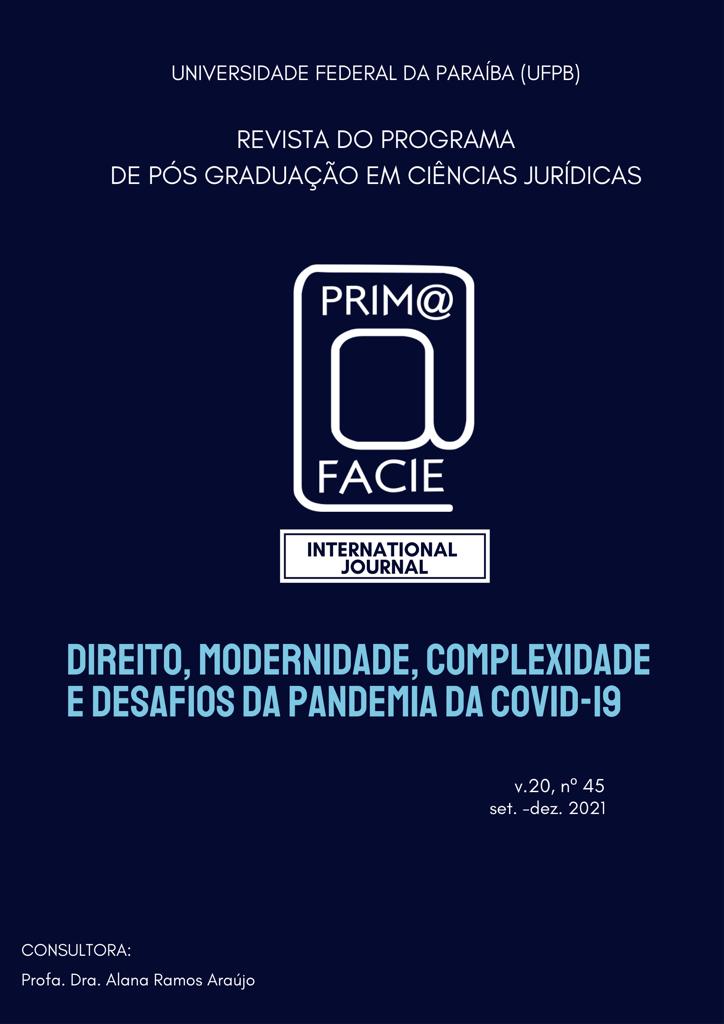Human Rights' American System, Transictional Justice and the Problem of Investigation from 1964 to 1985
DOI:
https://doi.org/10.22478/ufpb.1678-2593.2021v20n45.48764Abstract
In a sociopolitical context marked by denial and historical lack of education, it is important to spread information about a period so negatively striking to Brazilian society as the military regimen. By delimiting a comparative between the Transitional Justice specimens, and by drawing attention to the differences and similarities between the american and european International Systems of Human Rights, this piece aims to discuss the problematic of the investigative process related to crimes against humanity perpetrated on the Dictatorial Era in Brazil (1964-1985), pointing the difficulties and obstructions nowadays found at the trying of rescuing the memory and the justice regarding this historical moment. It will be used the hermeneutical method, with bibliographical reexam. Its results points to: (1) a deficient internal Transitional System, marked by the called “forgetfulness” and characterized by its incomplete and postponed nature; (2) a material difficulty, operational and juridically speaking – with the subside of law – in guaranteeing the right to justice, truethfulness and memory; and, finally, (3) a practical fragility related to the CADH norms application inside the brazilian territory, which leads to a juridical insecurity regarding the substantiation of fundamental norms and human rights defense inside the national field.
Downloads
Downloads
Published
How to Cite
Issue
Section
License
Copyright (c) 2021 A Prim@ Facie detém direitos exclusivos de publicação e distribuição sob concessão absolutamente franca da parte do autor, ou autores.

This work is licensed under a Creative Commons Attribution-NonCommercial-NoDerivatives 4.0 International License.
Os autores estão cientes de que transferem seus direitos de publicação e distribuição à revista Prima Facie. Os autores autorizam o uso do trabalho para fins não-comerciais, incluindo direito de enviar o trabalho em bases de dados de Acesso Livre. As provas finais poderão não ser enviadas aos autores antes da publicação, seguindo a revista seu padrão técnico explicitado nas suas normas e nos formatos praticados em acordo com a CAPES e com padrões de excelência adotados. As opiniões emitidas pelos autores são de sua exclusiva responsabilidade não sendo a revista solidária da livre opinião exposta por eles.

